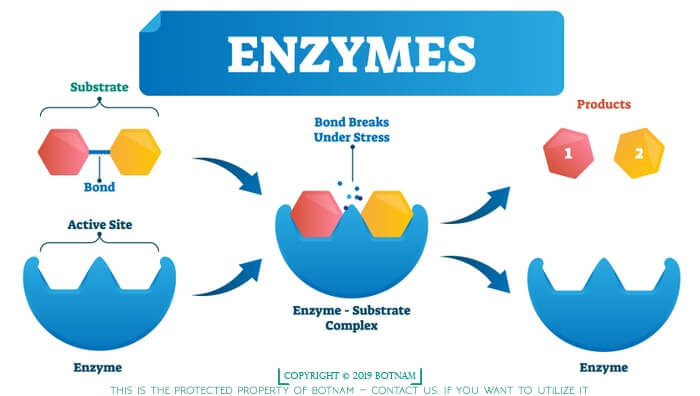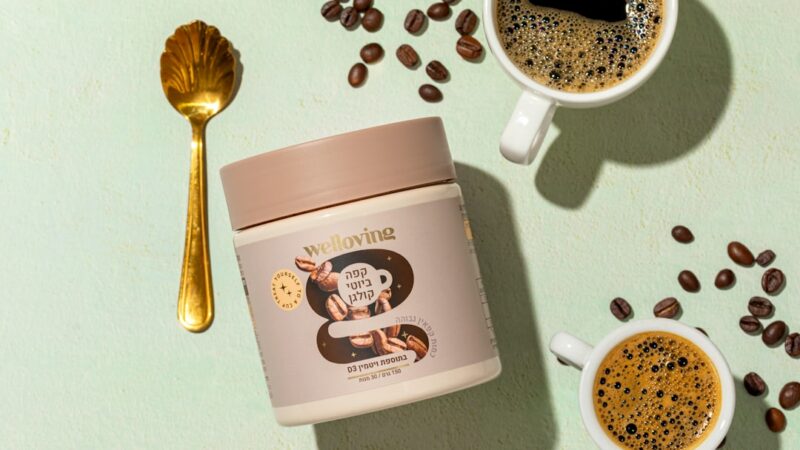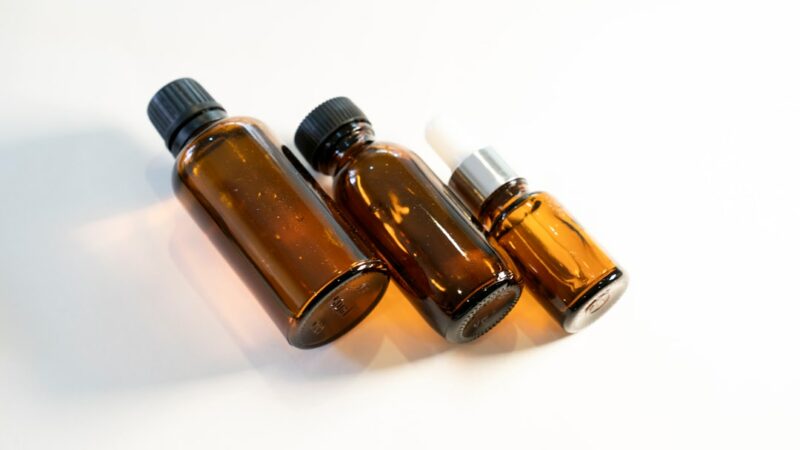“Marine Collagen: The Superfood from the Sea You’re Missing Out On”

Marine collagen has been gaining popularity in recent years as a natural supplement for promoting overall health and wellness. Derived from the skin, scales, and bones of fish, marine collagen is a type of protein that is known for its numerous benefits. In this article, we will explore the various benefits and potential uses of marine collagen, including its effects on skin health, joint health, digestive health, and anti-aging. Additionally, we will discuss the environmental benefits of using marine collagen and compare it to other collagen sources.
Table of Contents
Key Takeaways
- Marine collagen is a type of protein derived from fish and other marine sources.
- Marine collagen can improve skin health by increasing hydration, elasticity, and reducing wrinkles.
- Marine collagen can also benefit joint health by reducing inflammation and improving mobility.
- Marine collagen can aid in digestive health by supporting the gut lining and reducing inflammation.
- Marine collagen has potential anti-aging benefits and can be used in various forms such as supplements, powders, and skincare products.
What is Marine Collagen and Why is it Important?
Marine collagen is a type of collagen that is sourced from fish and other marine animals. It is extracted from the skin, scales, and bones of these animals through a process called hydrolysis. This process breaks down the collagen into smaller peptides, making it easier for the body to absorb and utilize.
Compared to other sources of collagen, such as bovine or porcine collagen, marine collagen has several advantages. Firstly, marine collagen has a smaller molecular weight, which means it can be more easily absorbed by the body. This makes it more effective in delivering its benefits to the skin, joints, and other areas of the body. Additionally, marine collagen is rich in type I collagen, which is the most abundant type of collagen found in the human body. This makes it highly compatible with our own collagen structure.
Marine collagen is important for overall health and wellness because it plays a crucial role in maintaining the structural integrity of our skin, joints, bones, and other connective tissues. As we age, our natural collagen production decreases, leading to wrinkles, joint pain, and other signs of aging. By supplementing with marine collagen, we can support our body’s natural collagen production and help maintain healthy skin and joints.
The Benefits of Marine Collagen for Skin Health
One of the most well-known benefits of marine collagen is its ability to improve skin health. Marine collagen has been shown to increase skin hydration, elasticity, and firmness, leading to a more youthful appearance. It can also help reduce the appearance of wrinkles and fine lines.
Research and studies have supported the effectiveness of marine collagen for improving skin health. In a study published in the Journal of Cosmetic Dermatology, participants who took marine collagen supplements for 12 weeks experienced significant improvements in skin hydration and elasticity compared to those who took a placebo. Another study published in the Journal of Medicinal Food found that marine collagen supplementation led to a significant reduction in wrinkle depth and improved skin texture.
Compared to other skincare products, marine collagen offers a natural and holistic approach to improving skin health. While topical creams and serums can provide temporary benefits, marine collagen works from within to support the production of collagen in the deeper layers of the skin. This leads to longer-lasting results and overall improvement in skin health.
Marine Collagen and Joint Health: How it Works
In addition to its benefits for skin health, marine collagen has also been shown to support joint health. As we age, the cartilage in our joints begins to break down, leading to joint pain, stiffness, and reduced mobility. Marine collagen can help alleviate these symptoms by providing the necessary building blocks for cartilage repair and regeneration.
Research and studies have demonstrated the effectiveness of marine collagen for joint health. A study published in the Journal of Agricultural and Food Chemistry found that marine collagen supplementation led to a significant reduction in joint pain and improved joint function in participants with osteoarthritis. Another study published in the Journal of Rheumatology showed that marine collagen supplementation helped reduce pain and stiffness in individuals with rheumatoid arthritis.
Compared to other joint health supplements, such as glucosamine or chondroitin, marine collagen offers a more comprehensive approach. While glucosamine and chondroitin primarily focus on reducing inflammation and providing lubrication to the joints, marine collagen provides the necessary amino acids and peptides for cartilage repair and regeneration. This makes it a more effective and long-lasting solution for joint health.
The Role of Marine Collagen in Digestive Health
In addition to its benefits for skin and joint health, marine collagen also plays a role in supporting digestive health. The amino acids found in marine collagen, such as glycine and proline, help strengthen the lining of the digestive tract and promote healthy digestion.
Research and studies have shown the effectiveness of marine collagen for digestive health. A study published in the Journal of Clinical Gastroenterology found that marine collagen supplementation helped improve symptoms of inflammatory bowel disease, such as abdominal pain and diarrhea. Another study published in the Journal of Nutrition showed that marine collagen supplementation helped reduce symptoms of leaky gut syndrome, such as bloating and food sensitivities.
Compared to other digestive health supplements, such as probiotics or fiber supplements, marine collagen offers a unique approach. While probiotics and fiber supplements focus on promoting healthy gut bacteria and improving digestion, marine collagen helps strengthen the lining of the digestive tract, reducing inflammation and promoting overall gut health.
How Marine Collagen Can Help with Anti-Aging

Another benefit of marine collagen is its ability to support anti-aging. As we age, our skin loses elasticity and firmness, leading to the formation of wrinkles and sagging skin. Marine collagen can help combat these signs of aging by promoting collagen production and improving skin elasticity.
Research and studies have shown the effectiveness of marine collagen for anti-aging. A study published in the Journal of Cosmetic Dermatology found that participants who took marine collagen supplements for 8 weeks experienced a significant reduction in wrinkle depth and improved skin texture compared to those who took a placebo. Another study published in the Journal of Drugs in Dermatology showed that marine collagen supplementation led to improvements in skin elasticity and firmness.
Compared to other anti-aging products, such as retinol creams or botox injections, marine collagen offers a more natural and holistic approach. While retinol creams and botox injections can provide temporary results, marine collagen works from within to support the production of collagen in the deeper layers of the skin. This leads to longer-lasting results and overall improvement in skin health.
The Environmental Benefits of Using Marine Collagen
In addition to its numerous health benefits, marine collagen also offers environmental benefits. Unlike other sources of collagen, such as bovine or porcine collagen, marine collagen is sourced from fish and other marine animals that are already being harvested for food. This means that no additional resources or animals need to be raised or slaughtered specifically for collagen production.
Furthermore, the process of extracting marine collagen is relatively sustainable and eco-friendly. The skin, scales, and bones of fish that are typically discarded as waste can be utilized to extract collagen through a process called hydrolysis. This reduces waste and maximizes the use of the entire animal.
Compared to other collagen sources, such as bovine or porcine collagen, marine collagen has a lower environmental impact. Raising cattle or pigs for collagen production requires significant resources, including land, water, and feed. Additionally, the waste produced by these animals can contribute to pollution and greenhouse gas emissions.
Marine Collagen vs. Other Collagen Sources: What’s the Difference?
When it comes to choosing a collagen supplement, it’s important to understand the differences between marine collagen and other sources of collagen. While all types of collagen offer similar benefits for skin health, joint health, and anti-aging, there are some key differences in terms of effectiveness and benefits.
Marine collagen is known for its high bioavailability, which means it can be more easily absorbed by the body. This makes it more effective in delivering its benefits to the skin, joints, and other areas of the body. Additionally, marine collagen is rich in type I collagen, which is the most abundant type of collagen found in the human body. This makes it highly compatible with our own collagen structure.
On the other hand, bovine collagen and porcine collagen have a larger molecular weight, which makes them less easily absorbed by the body. They also contain a mix of different types of collagen, including type I, II, and
While this can still provide benefits for skin health, joint health, and anti-aging, marine collagen offers a more targeted and effective approach.
How to Incorporate Marine Collagen into Your Diet
There are several ways to incorporate marine collagen into your diet. One of the most common ways is to take it as a supplement in powder or capsule form. Marine collagen supplements can be easily mixed into smoothies, juices, or water for a convenient and effective way to consume it.
Another way to incorporate marine collagen into your diet is to consume foods that are naturally rich in collagen. Fish and seafood, such as salmon, tuna, and shrimp, are excellent sources of marine collagen. You can also include other collagen-rich foods in your diet, such as bone broth, chicken skin, and pork rinds.
Additionally, there are now many food and beverage products on the market that are fortified with marine collagen. These include collagen-infused snacks, drinks, and even beauty products like collagen-infused face masks.
What to Look for When Choosing a Marine Collagen Supplement
When choosing a marine collagen supplement, there are several factors to consider to ensure you are getting a high-quality and effective product. Firstly, look for a supplement that is made from wild-caught fish or sustainably farmed fish. This ensures that the fish used for collagen extraction are free from contaminants and raised in a responsible manner.
Secondly, choose a supplement that is hydrolyzed, which means the collagen has been broken down into smaller peptides for better absorption. This ensures that the collagen is easily absorbed by the body and can deliver its benefits more effectively.
Lastly, look for a supplement that is third-party tested for quality and purity. This ensures that the product has been tested for contaminants, such as heavy metals or toxins, and meets the highest standards of quality.
The Future of Marine Collagen: Innovations and Potential Uses
The field of marine collagen is constantly evolving, with ongoing research and development leading to new innovations and potential uses. One area of interest is the use of marine collagen in wound healing and tissue regeneration. Studies have shown that marine collagen can promote wound healing and reduce scar formation, making it a promising ingredient for medical applications.
Another area of interest is the use of marine collagen in the development of sustainable materials. Researchers are exploring ways to use marine collagen to create biodegradable plastics, films, and coatings. This could have significant environmental benefits by reducing our reliance on fossil fuels and reducing plastic waste.
Furthermore, there is ongoing research into the potential use of marine collagen in the treatment of various diseases and conditions, such as osteoporosis, diabetes, and cardiovascular disease. While more research is needed to fully understand the potential benefits and applications of marine collagen, the future looks promising.
In conclusion, marine collagen offers numerous benefits for overall health and wellness. From improving skin health to supporting joint health, digestive health, and anti-aging, marine collagen has become a popular supplement for those looking to enhance their well-being. Additionally, its sustainable and eco-friendly nature makes it an attractive choice for those concerned about the environment. By incorporating marine collagen into your diet through supplements or collagen-rich foods, you can support your body’s natural collagen production and enjoy the many benefits it has to offer.
If you’re interested in exploring more superfoods and their health benefits, you might want to check out this article on the best turmeric supplement for inflammation. Turmeric has long been recognized for its anti-inflammatory properties and is often used as a natural remedy for various health conditions. Discover the top 10 turmeric supplements that can help reduce inflammation and improve overall well-being. Read more here.
FAQs
What is marine collagen?
Marine collagen is a type of protein that is extracted from the skin, bones, and scales of fish and other marine animals.
What are the benefits of marine collagen?
Marine collagen has been shown to improve skin health, reduce joint pain, and promote healthy hair and nails. It may also have anti-aging properties and support gut health.
How is marine collagen different from other types of collagen?
Marine collagen is different from other types of collagen because it has a smaller molecular weight, which makes it easier for the body to absorb and use. It also contains unique amino acids that are not found in other types of collagen.
Is marine collagen safe?
Marine collagen is generally considered safe for most people to consume. However, individuals with fish allergies should avoid marine collagen supplements.
How can I incorporate marine collagen into my diet?
Marine collagen can be found in supplement form, as well as in certain foods such as fish skin and bone broth. It can also be added to smoothies, coffee, and other beverages.








